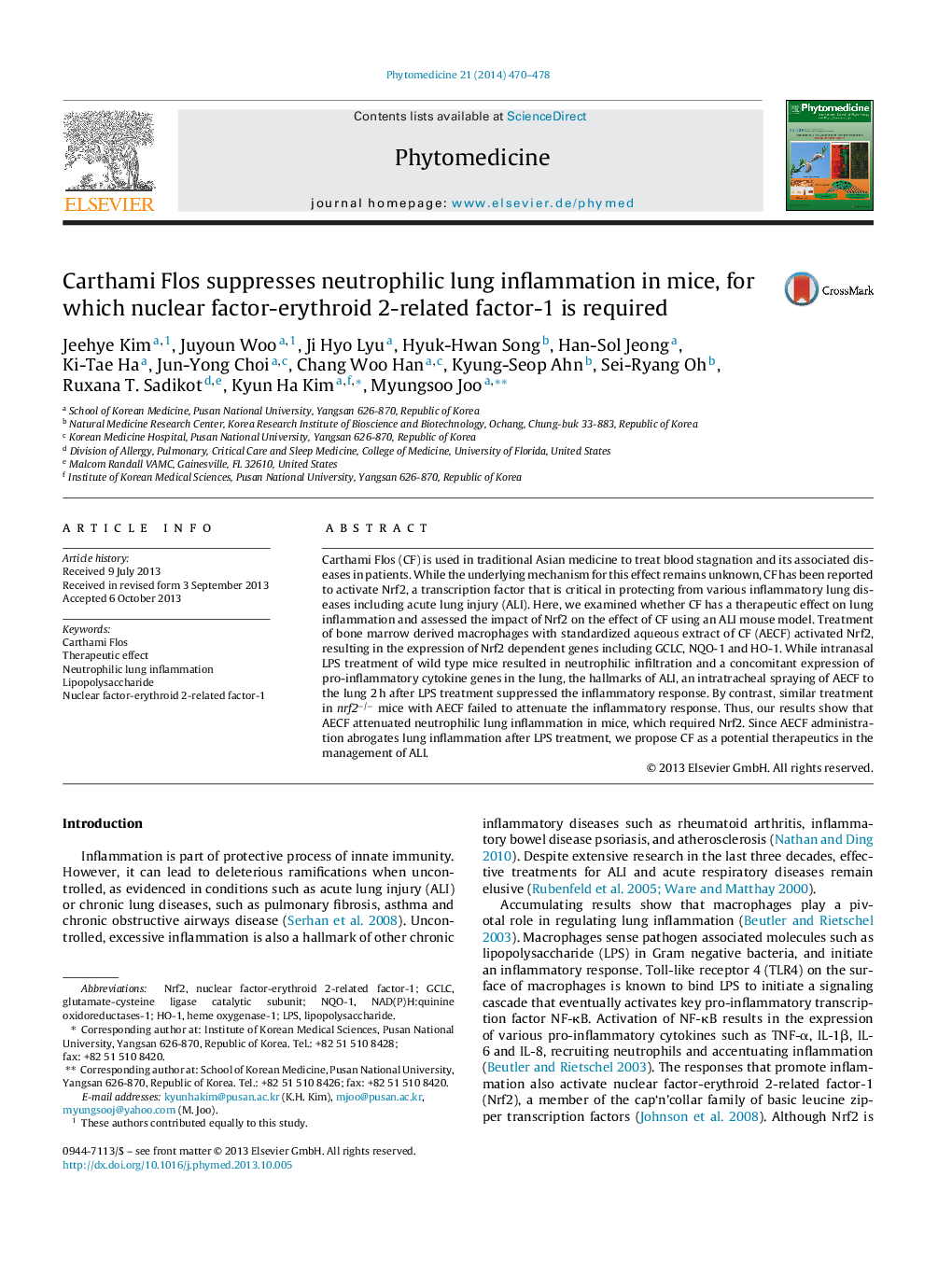| Article ID | Journal | Published Year | Pages | File Type |
|---|---|---|---|---|
| 2496594 | Phytomedicine | 2014 | 9 Pages |
Carthami Flos (CF) is used in traditional Asian medicine to treat blood stagnation and its associated diseases in patients. While the underlying mechanism for this effect remains unknown, CF has been reported to activate Nrf2, a transcription factor that is critical in protecting from various inflammatory lung diseases including acute lung injury (ALI). Here, we examined whether CF has a therapeutic effect on lung inflammation and assessed the impact of Nrf2 on the effect of CF using an ALI mouse model. Treatment of bone marrow derived macrophages with standardized aqueous extract of CF (AECF) activated Nrf2, resulting in the expression of Nrf2 dependent genes including GCLC, NQO-1 and HO-1. While intranasal LPS treatment of wild type mice resulted in neutrophilic infiltration and a concomitant expression of pro-inflammatory cytokine genes in the lung, the hallmarks of ALI, an intratracheal spraying of AECF to the lung 2 h after LPS treatment suppressed the inflammatory response. By contrast, similar treatment in nrf2−/− mice with AECF failed to attenuate the inflammatory response. Thus, our results show that AECF attenuated neutrophilic lung inflammation in mice, which required Nrf2. Since AECF administration abrogates lung inflammation after LPS treatment, we propose CF as a potential therapeutics in the management of ALI.
Graphical abstractFigure optionsDownload full-size imageDownload high-quality image (68 K)Download as PowerPoint slide
